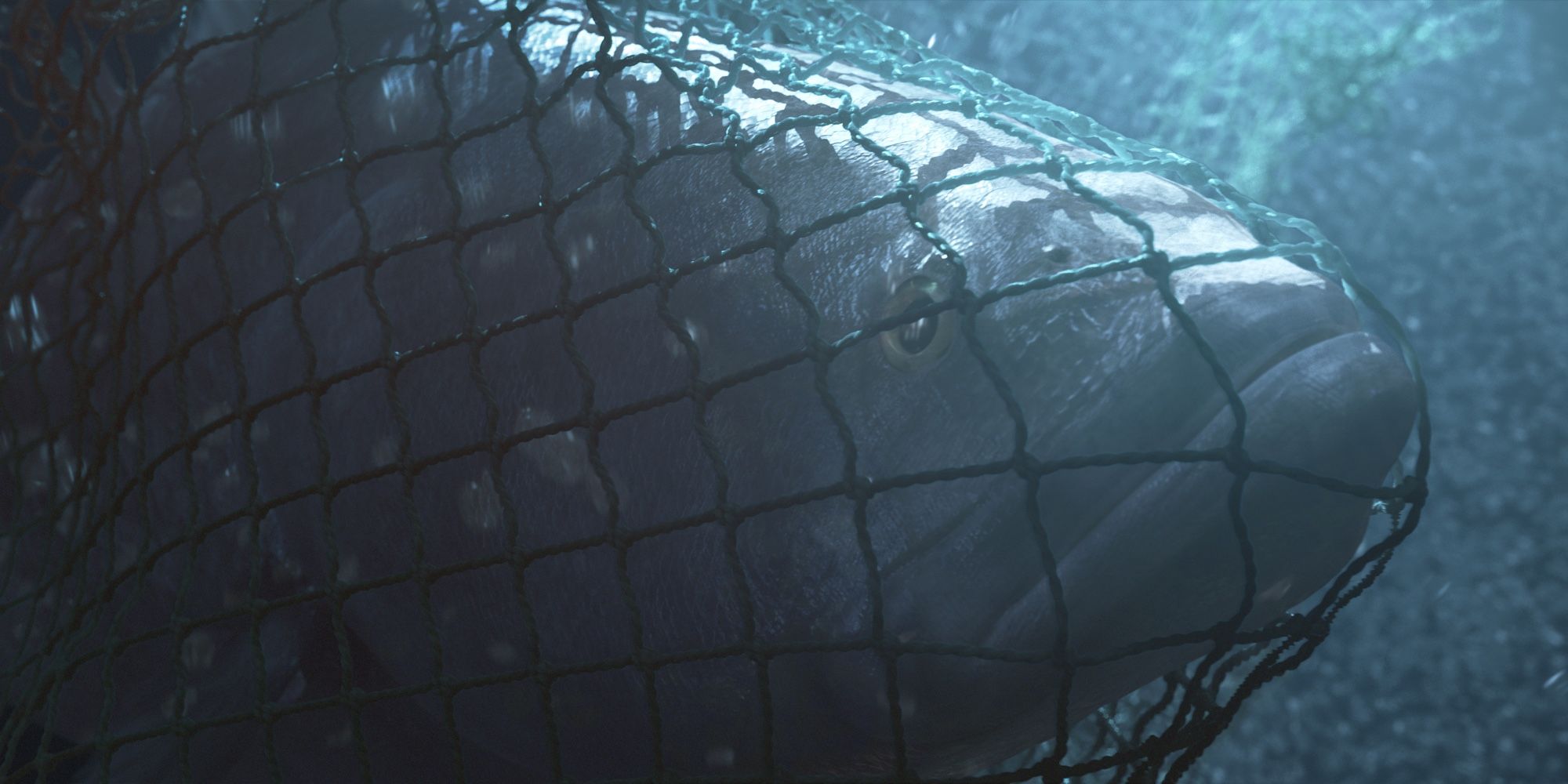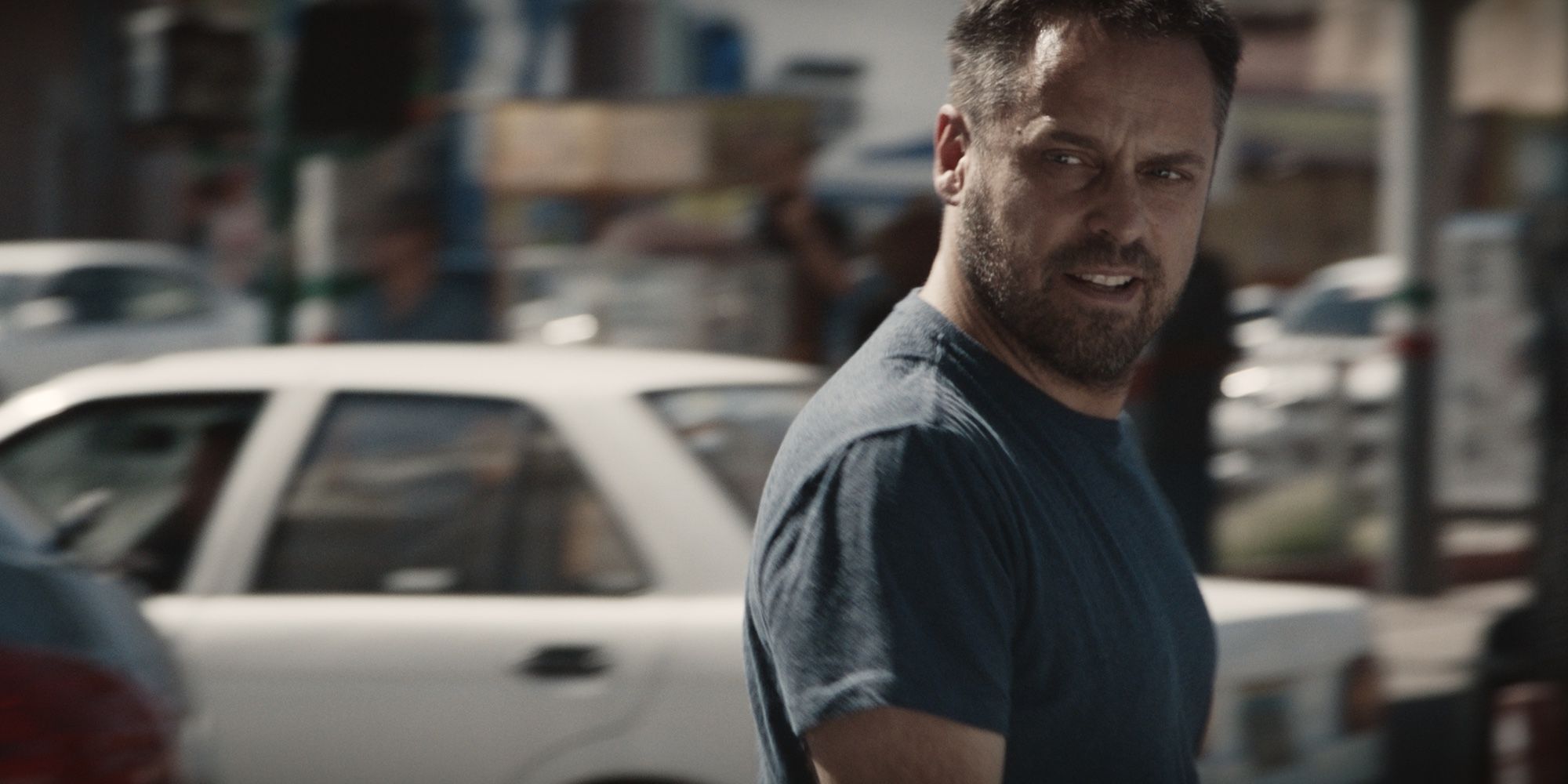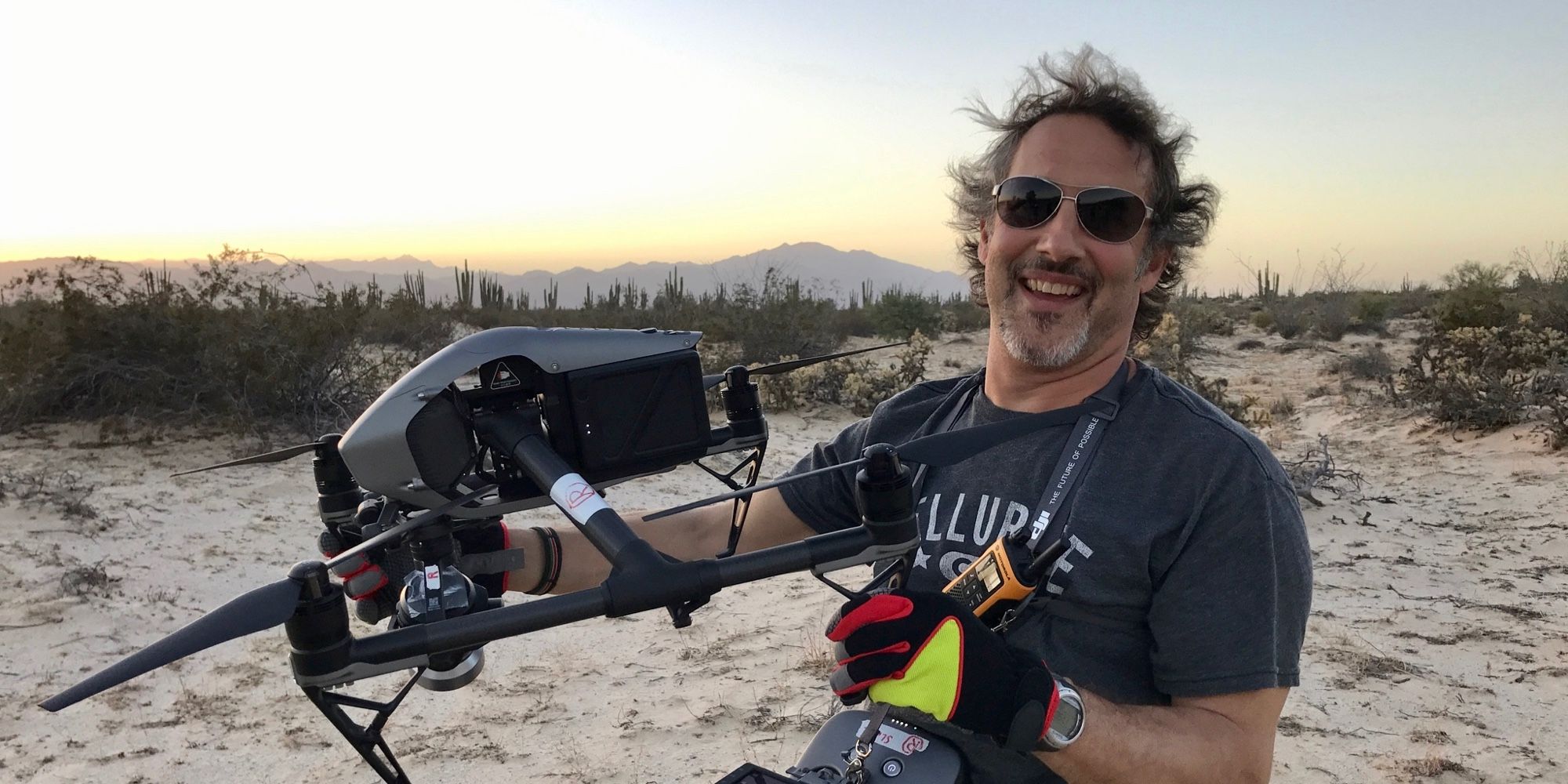A looming disaster in one of the most spectacular environments on Earth sparks a rescue mission unlike any other in Sea of Shadows, a riveting new documentary with the intensity of a Hollywood thriller from National Geographic Documentary Films and winner of the Sundance audience award. When Mexican drug cartels and Chinese traffickers join forces to poach the rare totoaba fish in the Sea of Cortez, their deadly methods threaten virtually all marine life in the region, including the most elusive and endangered whale species on Earth, the vaquita porpoise. Sea of Shadows follows a team of dedicated scientists, high-tech conservationists, investigative journalists and courageous undercover agents as well as the Mexican Navy as they put their lives on the line to save the last remaining vaquitas and bring the vicious international crime syndicate to justice.
We were lucky enough to speak with Andrea Crosta, executive director and co-founder of Earth League International, and Richard Ladkani, the director of this powerfully, impactful documentary. To get to the root of this documentary and find out why it should be required viewing for so many of us that call this planet home.
SR: Usually with every documentary there is a message, when it comes to one with such a wide scope as this one, what is your message that you hope to communicate to not only National Geographic viewers but the world?
Richard Ladkani: I feel that what is being conveyed or communicated to the masses is the symbolism, in that its very symbolic of what is going on with our planet, right now. You have criminal syndicates who are joining forces on different levels. You have the Sinaloa Cartel and the Chinese Mafia of Tijuana. Who are both conspiring against our planet. Especially against the Sea of Cortez to extract the Totoaba fish, with which they can make almost millions upon millions of dollars. But, by doing so they are destroying not only the environment but an ecosystem and ultimately, nature itself. They are single-handedly bringing upon the extinction of the smallest whale on earth; the Vaquita. So we believe this is a story that needs to be heard, and it needs to be heard with a lour, strong, and attention grabbing voice. And that means internationally. We expect an outrage, this is happening only three hours south of the US boarder and if we can’t even fix this relatively small injustice on the planet; what can we expect to fix on a global scale. Endangered species are under attack by organized crime, and that requires our attention as a global community, but it's not receiving it and we want to change that
SR: Of course, it's the symbolism of the micro reflecting the future of the macro.
Andrea Crosta: We’re talking about four-hundred square miles where the Vaquita live. How can we not protect that; you have the Navy, Police, and Army all stationed there. The problem is they aren’t doing their jobs. They aren’t taking it seriously enough for them it’s simply a delinquency, a petty crime. Yet, it is a, irreversible extinction level event that is occurring right before their eyes.
SR: How did such a dense project come to you, as a director?
Richard Ladkani: It came to me through Adrea Crosta, he was doing an investigation on the Totoaba. The poaching and trade of the Totoaba’s swim bladder. And to be honest I had heavy doubts about this being more than a pipe dream. Let alone a commercial film that would have a large audience. When you're talking about two species that people aren't even sure truly exist. The Vaquita was considered a fisherman’s tale. No one has seen it and there was no footage of it in the wild or anywhere else. Lucky enough we were able to inform Leonardo di Caprio (who produced Ladkini’s previous project, The Ivory Game) about the Vaquita. And he grew very concerned and involved in the preservation of this species. So much so that he met with the Mexican President to establish strong relationships throughout the government, Navy and CPR. and said he would open doors and give his name to be used to shine a spotlight on our efforts to spread the word and make this documentary.
SR: What impact do you expect or hope for this film to have on the present poaching of the Totoaba and growing genocide of the Vaquita?
Richard Ladkani: We need the government to wake up and understand that the world does care and we will no longer ignore the extinction of another species on our watch. We as a global community know they are looking the other way, and it does seem that they may be hoping for extinction so they can worry about other problems and not deal with this anymore, almost as if this sort of watch dog approach is a nuisance to them. Everything we see is a half-hearted effort to keep some level of optics. We expect them to care, and understand that it is their responsibility to protect the ecosystem and go after those knowingly destroying it for their own self centered purposes. Namely the Cartels and the Chinese criminals which Andrea Crosta was able to expose. By providing names, numbers, address to the various governments involved (US, Chinese, and Mexican). Now that they have this well-spring of information we need them to jump to action. We need them to help the fishing community there. They need a future, you can't go after just the criminals and ignore the local population. They need a solution, they need to be back out in the water, and they need to be able to fish in a sustainable way. Their compensation program that was created for them to off set the loss of finances due to what was deemed as illegal fishing was stopped because the government thought it wasn't working and they were killing the Vaquita regardless. So we need action from the combined governments.
SR: And for yourself, Andrea. How did this issue come to you?
Andrea Crosta: Our organization collects intelligence. And acts as a small environmental spy agency. Some of our team member are former FBI, and intelligence officers. We scour the planet for environmental problems where there is a need to approach the problem as a crime and not a problem. And that has been historically the conflict with how we, as a global community, deal with those problems. They are more than that, they are complex, intricate, crimes. And when you leave them in the hands of :sociologist, biologists, or activists. There is only so much that can be done. And unfortunately, it’s not enough. It’s not their job to deal with kingpins, and organized crime. And it is the reason we keep losing these wars around the world for the past decade. For example the rhino crisis, tiger crisis, and even deforestation; all these issues have a crime component and the scientists aren't well equipped to attack it alone. There are different techniques, and mindsets that must be employed to eradicate these crimes. And rime has a brain like a virus, once it has been stamped out in one form. It will return in a different form and be far more resilient. We have to expect that and be in a rate of constant vigilance.
SR: They say no good deed goes unpunished. What repercussions have you, or your team faced from the Mexican Navy, Cartels, or even the Chinese traffickers since making this documentary?
Richard Ladkani: The one person who has been targeted the most was the investigative journalist, Carlos Loret de Mola. He was already receiving death threats but, now they have grown in there intensity. He has a large price tag on his head. His life is in danger and when the film comes out in Mexico I fear it will only get worse. The film has successfully been under wraps and only been seen and heard at festivals and out of the sight of news outlets. We had one screening in Mexico in April for the local government and the security was tight. We were rushed in and out without even as much as being seen by people. All with warnings of “they kill people here for much less”.
Andrea Crosta: Ultimately, we do fear for our lives but we know what we have put our lives on the line for. The Vaquita’s numbers are dwindling. Currently there are less than fifteen Vaquita alive. We need Mexico and the world to see that they are for Mexico, what the Panda is for China. It could be their symbol. Like we said prior, before this film they were doubting its existence. We were the first to capture genuine footage of a live Vaquita. People have seen photos and claimed they were photo shopped stills of dolphins or whales but not the actual genus of the whale species. Prior to this interview the President of Mexico mention the Vaquita and its preservation. Which is a landmark move because they are acknowledging its existence. He stated “it is our mandate to preserve the species and save them from extinction and we will take care of it”. But in turn he ignored any questions concerning it. He simply stated that they are on the current administration's agenda.
Richard Ladkani: We have garnered the attention of the UN. concerning the Vaquita and they are very active with endangered species preservation and they are putting intense pressure on the Mexican government . And with Leonardo DiCaprio’s help more eyes than ever before are on the Vaquita. The man tweets and the world listens. Even with that we just need to be loader. And we have to do this on a short time frame. In December the Cartel move back into the area and start hunting down the Totoaba because they are seasonal. Six months close to shore for breeding than six months out in the open-sea.
Sea Of Shadows is in select theaters as of July 12, 2019 and will have a larger worldwide release in September.



